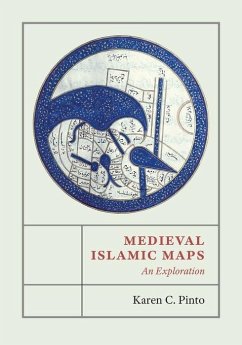The history of Islamic mapping is one of the new frontiers in the history of cartography. This book offers the first in-depth analysis of a distinct tradition of medieval Islamic maps known collectively as the Book of Roads and Kingdoms (Kitab al-Masalik wa al-Mamalik, or KMMS). Created from the mid-tenth through the nineteenth century, these maps offered Islamic rulers, scholars, and armchair explorers a view of the physical and human geography of the Arabian peninsula, the Persian Gulf, the Mediterranean, Spain and North Africa, Syria, Egypt, Iraq, the Iranian provinces, present-day Pakistan, and Transoxiana. Historian Karen C. Pinto examines around 100 examples of these maps retrieved from archives across the world from three points of view: iconography, context, and patronage. By unraveling their many symbols, she guides us through new ways of viewing the Muslim cartographic imagination.
Hinweis: Dieser Artikel kann nur an eine deutsche Lieferadresse ausgeliefert werden.
Hinweis: Dieser Artikel kann nur an eine deutsche Lieferadresse ausgeliefert werden.








